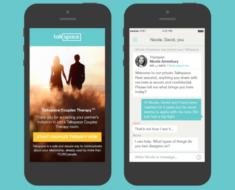
Health financing is a term used to describe the various ways in which healthcare expenses are met. It can include everything from private insurance to government-funded programs like Medicare and Medicaid. This blog post will discuss the different types of health financing the benefits and drawbacks of each system. By understanding health financing, you can make more informed decisions about how to best pay for your healthcare needs.
Ways needed to make informed healthcare expenses decisions.
Private Insurance
This insurance is the most common way to pay for healthcare expenses. Employers, unions, or other groups offer this insurance as an employee benefit.
Benefit: Individuals can also purchase their policy from an insurance company. Private insurance typically covers hospital visits, doctor appointments, prescription drugs, and other medical services. Premiums vary depending on the type of policy you choose, but they can be expensive.
Government-Funded Programs
The most well-known programs are Medicare and Medicaid. Medicare is for people over the age of 65, and it covers hospital visits, doctor appointments, prescription drugs, and other medical services. Medicaid is for low-income individuals and families, and it covers hospital visits, doctor appointments, prescription drugs, and other medical services.
Benefit: The federal government funds both Medicare and Medicaid.
Out-of-Pocket Payments
Out-of-pocket payments are when individuals pay for their healthcare expenses directly to the provider; this can include co-pays for doctor appointments or prescriptions drugs, deductibles for hospital visits, and payments for services not covered by insurance.
Out-of-pocket expenses can be expensive, especially if you have a high deductible policy.
Drawbacks
Private insurance
Individuals who opt for the individual market do not have access to employer-sponsored coverage. Individuals who switch jobs may not take their existing insurance with them if they leave their company.
Government-funded programs
Policies may not cover all healthcare expenses. Individuals could have thousands of dollars in out-of-pocket costs; eligibility requirements vary by state, so there is no guarantee that anyone will qualify for either program.
Out-of-pocket payments
This option is only available to those with enough money saved up or access to credit cards/loans.
Conclusion
Healthcare expenses can be costly, especially when you do not have insurance. Understanding how health financing works can help you make more informed decisions about how to best pay for your healthcare needs. Hopefully, with this knowledge, the next time someone asks you what they should do if they get sick and cannot afford it will not be a difficult question anymore.
Dil Bole Oberoi





